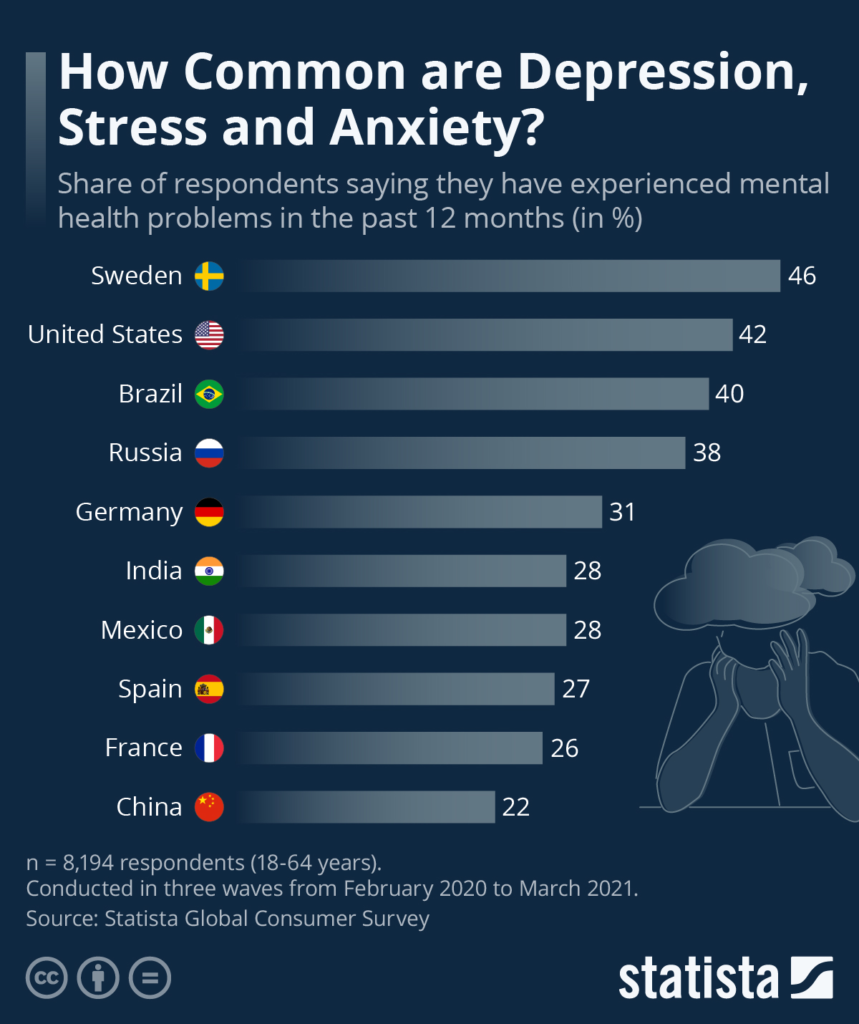
On June 7th, tennis star Naomi Osaka has announced her withdrawal from Roland Garros one day after she was fined $15,000 by the French Open and warned that she could face expulsion from the tournament following her decision not to speak with the press during the tournament.
In her withdrawal statement, the four-time Grand Slam single champion and highest-paid female athlete, revealed that she has suffered from “long bouts of depression” since the 2018 US Open final. Naomi Osaka concluded her statement by saying she suffers “huge waves of anxiety” before speaking with the media.
As our chart shows, 42 percent of the people surveyed for the Statista Global Consumer Survey in the US stated that they had experienced mental health problems such as depression, stress or anxiety in the 12 months prior to the survey.
However, the data only reveals little about the actual distribution. The fact that the proportion of those who see their mental health impaired is over 40 percent in both Sweden and the U.S. may also be linked to differences in social acceptance of such problems. This also applies to the other end of the spectrum: the survey does not provide an answer as to whether the French or Chinese are mentally healthier than Americans or Germans.

According to the UN, millions of people worldwide have mental health conditions and an estimated one in four people globally will experience a mental health condition in their lifetime. Mental health problems, including alcohol abuse, are among the ten leading causes of disability in both developed and developing countries. In particular, depression ranks as the disease with the third biggest global burden and is projected to rank first by 2030.













